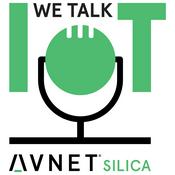In this episode, we explore how accessible AI vision technology has become - and the surprising challenges that come with it.
Luke Walsh from Brainboxes built an AI rock, paper, scissors game using open-source software and hardware costing under £1,000. The playful demo masks serious industrial applications: from catching defects in car seat stitching with 22 cameras to monitoring hazardous environments without putting maintenance engineers at risk.
The conversation covers the technical realities of sub-200-millisecond latency, the stubborn resistance of factory maintenance teams, and why Overall Equipment Effectiveness (OEE) has been the missing piece in factory automation. Luke explains how vision systems can now replace invasive sensors, monitor quality without human inconsistency, and prove their worth to sceptical teams - one tote bin at a time.
Tune in to learn why the best way to deploy AI in factories is to start small, prove value fast, and never assume your training data covers every possible hand gesture.
#AI #computervision #manufacturing #opensource #bias #wetalkiot
Summary of this week's episode:
01:59 What Brainboxes does
05:43 How AI recognises hand gestures in under 200 milliseconds
08:42 Three reasons to choose open source: Latest models, trained engineers, community support
10:58 Real-world applications: Quality control and OEE
13:45 The car seat stitching use case: 22 cameras, one seat, zero tolerance
16:01 Beyond quality: Monitoring hazardous environments and non-invasive throughput measurement
17:39 Winning over sceptical maintenance teams
19:22 The tote bin story: When data settles a night shift dispute
20:35 The bias challenge: When "scissors" becomes a swearing gesture
23:08 The future of industrial AI vision systems and Jevons Paradox
25:13 Advice for manufacturers: Start small, keep it simple, nail first impressions
Show notes:
Luke Walsh: https://www.linkedin.com/in/lukewalsh/
The Brainboxes white paper about the demo: https://www.brainboxes.com/white-papers/ai-vision-systems-demo
Listen to the "We Talk IoT" Soundtrack on:
Spotify: https://open.spotify.com/playlist/05MOV4OV2MH2in2txsAGtG?si=ad08112cb8d443f4
YouTube: https://www.youtube.com/watch?v=D-NvQ6VJYtE&list=PLLqgVFfZhDRVYmpEqbgajzDvGL4kACRDp
About Avnet Silica:
This podcast is brought to you by Avnet Silica—the Engineers of Evolution.
Subscribe to our newsletters here: https://my.avnet.com/silica/resources/newsletter/
You can connect with us on LinkedIn: https://www.linkedin.com/company/silica-an-avnet-company/. Or find us at www.avnet-silica.com.



